AAP welcomed its second cohort of our African Futures Research Leadership program in 2021. First beginning in the Fall of 2019. this competitive program was set in place to bring early-career female researchers from AAP’s member institutions, and have them conduct research in a field that aligns with AAP’s six priority areas: agri-food systems, water, energy, and environment, youth empowerment, education, culture, and health and nutrition. Through this program, the scholars strengthened their skills in leadership, team development, research development, engagement, and collaboration, with a goal of having them be able to return to their home institutions and become scientific leaders in their community, help solve Africa’s challenges, and in turn become trainers of the next generation. For more on this program, click here: African Futures Research Leadership program.
Despite being postponed due to COVID-19 restrictions, the second cohort of African Futures Scholars arrived July 2021. Our ten scholars have faced significant barriers in order to travel to Michigan, but received a warm Spartan welcome. After getting to know the campus, meeting their MSU mentors, attending a formal orientation, and having a welcome reception in their honor, the ten women scholars will be ready to start their research journey here at MSU.
This set of scholars will provide a unique perspective and experience to AAP's priority areas through the African Futures program. To commemorate their great achievement, we have composed a series of ten mini-features on these incredible women’s stories and the innovative work they plan to do here at MSU. Below are some brief summaries on each scholar and a link to their feature stories.
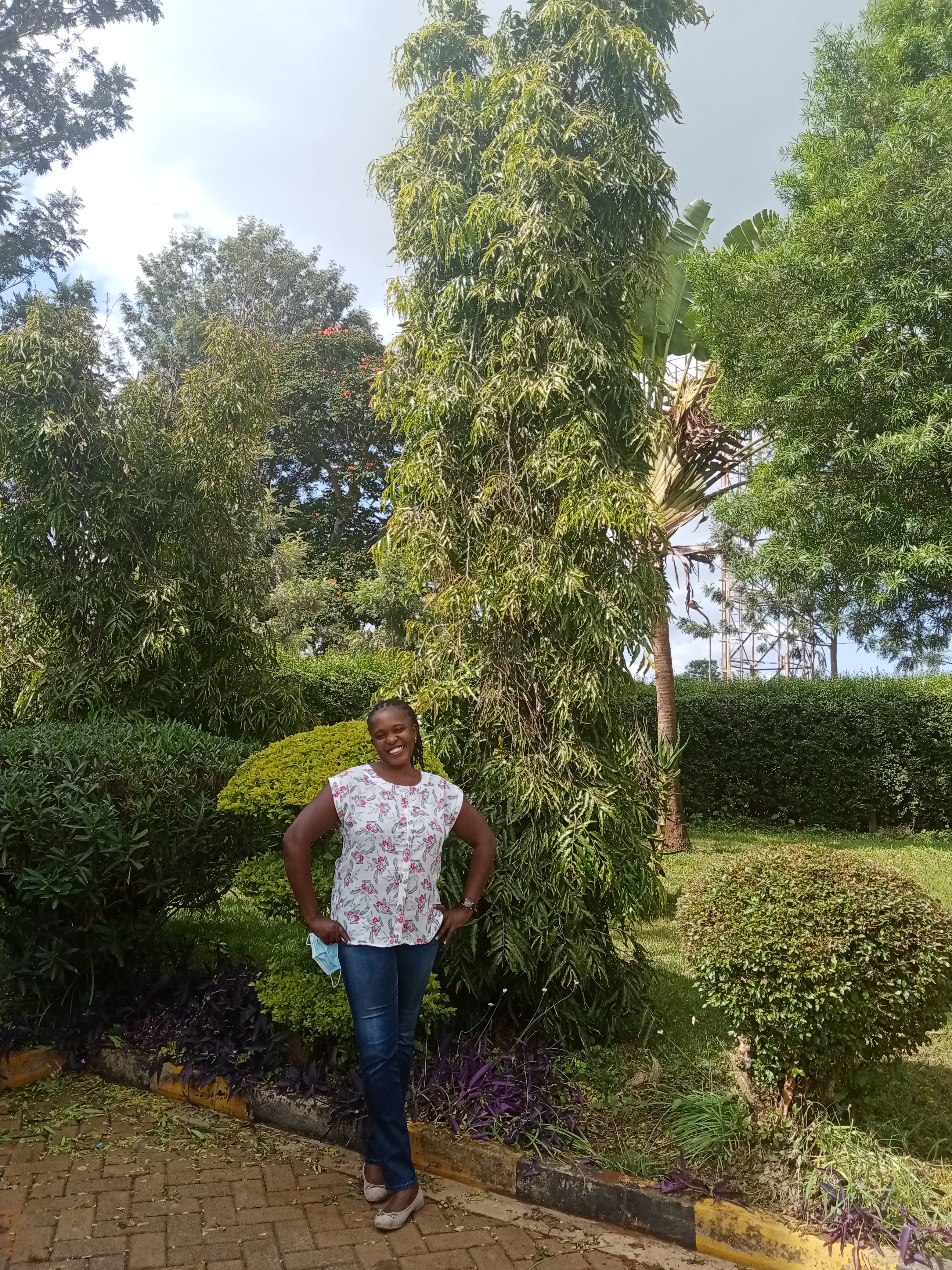
Dr. Miriam Karwitha Charimbu is a crop production and protection specialist from Egerton University, Kenya. She has research interests in crop pest and disease management, impact of climate change on crop production and climate smart agricultural production technologies. Dr. Charimbu worked with farmers, farmer groups and extension service providers to reduce crop losses, increase food availability and improved farmer livelihoods. While working with farming communities in arid and semi-arid areas under ‘Kenya Climate Smart Agricultural Project’, Dr. Charimbu developed interest on agricultural mechanization mostly for improved soil and moisture under conservation agriculture as well as reduce drudgery among small holder farmers who are mainly women and are aged (over 40 years old). Her participation in the “Evaluating New Tools for Farmers: A Health and Economic Analysis of Redesigned Garden Hoes project” will enable her to make impact on the lives of small holder farmers in Arid and Semi-arid areas of Kenya. This will be through evaluating the designed tools for enhanced sustainable agricultural production, making crop production gender and age friendly as well as conserving soil and water in agricultural production systems despite the changing climate.
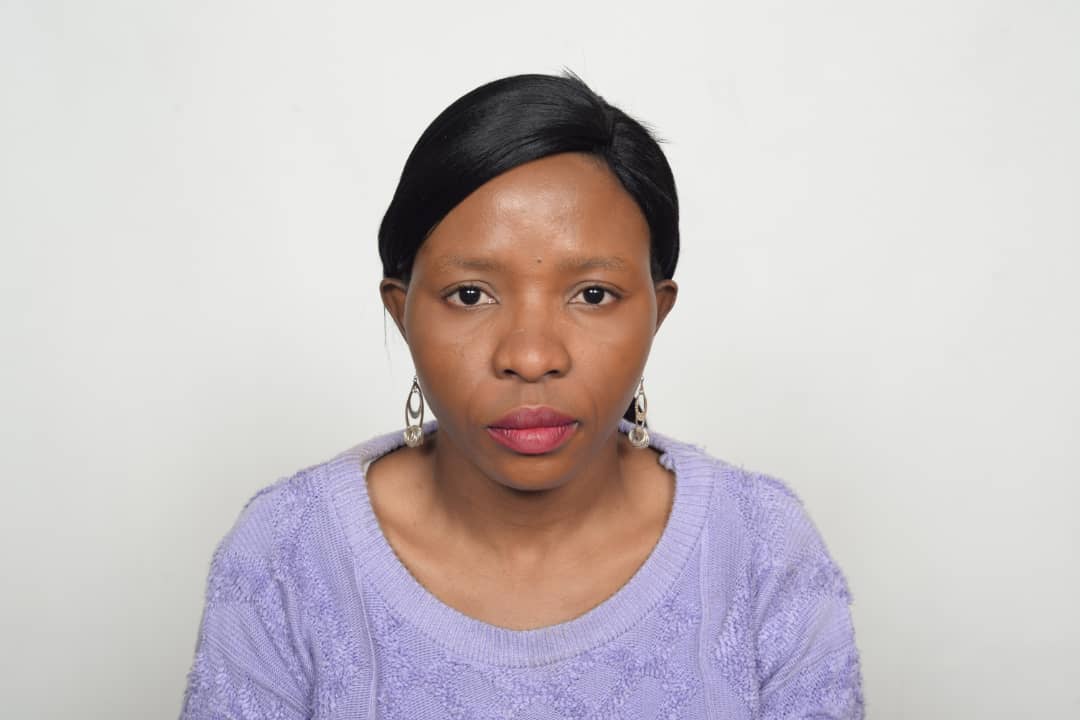
Dr. Junice Dzonzi has a PhD Engineering (Environmental Science) from China University of Geosciences; MSc. Integrated Resource Management from The University of Edinburgh and BSc. Natural Resources Management from University of Malawi.
She is currently working as a Lecturer in Energy Resources Management at Lilongwe University of Agriculture and Natural Resources. Dr. Dzonzi has sound knowledge, experience and related research and consultancy skills in Energy systems, management and development, including energy policy, politics and economics; general Natural Resources and Environmental Management, extractives management, climate change science and management, social dimensions of Environmental Change and sustainability, Biodiversity, forest resources management and conservation etc. She has as a well of research and consultancy experience in conducting Energy, Environment and Natural Resources management based evaluations, Environmental and Social Impact Assessments as well as developing Environmental and Social Management frameworks and plans. Additionally, she has sound knowledge and related research skills in social and development issues in Malawi.
During AAP African Futures Programme, she will be working with Dr. Leo Zulu at MSU and Dr. Judith Kamoto at LUANAR on a broad topic “Promoting Sustainable Management of Natural Resources in Malawi’s tobacco growing areas”; where among the specific projects will be on “Investigating the willingness to invest in bamboo production among tobacco growing farmers” and “investigating into sustainable bioenergy/ fuelwood options that can be used among tobacco growing farmers instead of the indigenous fuelwood in Malawi.
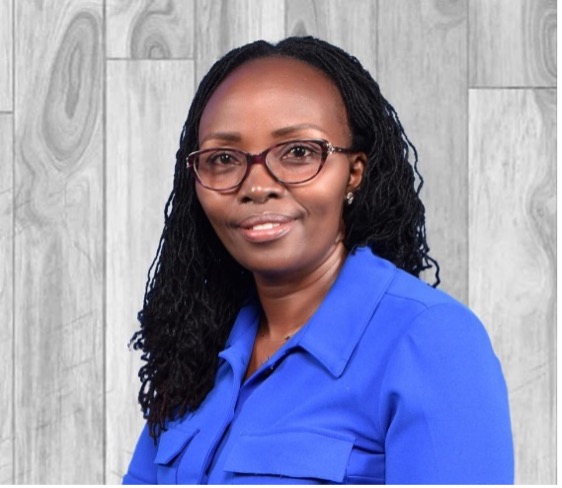
Dr. Mercy Kaburu is a Lecturer of international relations at United States International University (USIU)-Africa, where she focuses on foreign policy analysis, regionalism and regional integration, and theory of international relations. Dr. Kaburu holds a PhD in international relations from United States International University-Africa, and a Master of Arts degree in international conflict management from the Institute of Diplomacy and International Studies, University of Nairobi-Kenya.
Dr. Kaburu is also a trained practitioner in project monitoring and evaluation which creates opportunities for her continued interaction with non-governmental organizations and local communities as the principle beneficiaries of both community initiatives and donor funded projects. She is skewed towards projects relating to political empowerment for women and the youth, countering/prevention of violent extremism and radicalization of the youth in Kenya, and, sustainable peace through interethnic/ interreligious dialogue in Kenya. As a researcher, Dr. Kaburu has publications on a number of research areas of interests including: Institutions and Kenya’s foreign policy; The legal protection of Somali refugees in Kenya; Women and political participation in Kenya; and, Popular participation in the integration and democratization of East African Community.
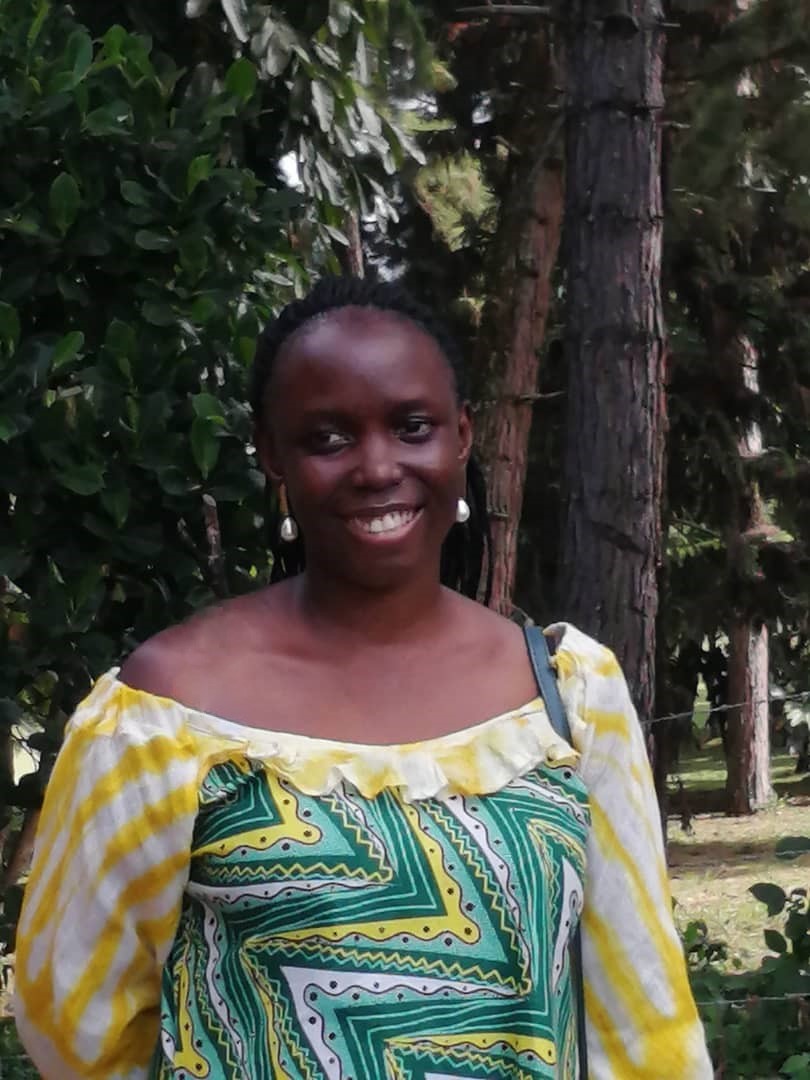
Dr. Ellen Kayendeke is a lecturer at the department of Environmental Management, Makerere University. She has 10 years’ experience of teaching and research in the field of mapping and monitoring of natural resources using GIS and Remote sensing techniques. Her PhD research focused on quantifying the water storage capacity of floating papyrus wetlands, and understanding how the hydrological regimes of these wetland systems are impacted by climatic and land use/cover changes. Her current research interests are in modelling groundwater-surface water interactions, catchment modelling, as well as modelling the linkages between water, energy, and food systems for sustainable agricultural production.
During her stay at Michigan State University (MSU), Dr. Kayendeke will be working on participatory modeling for sustainable wetland management.
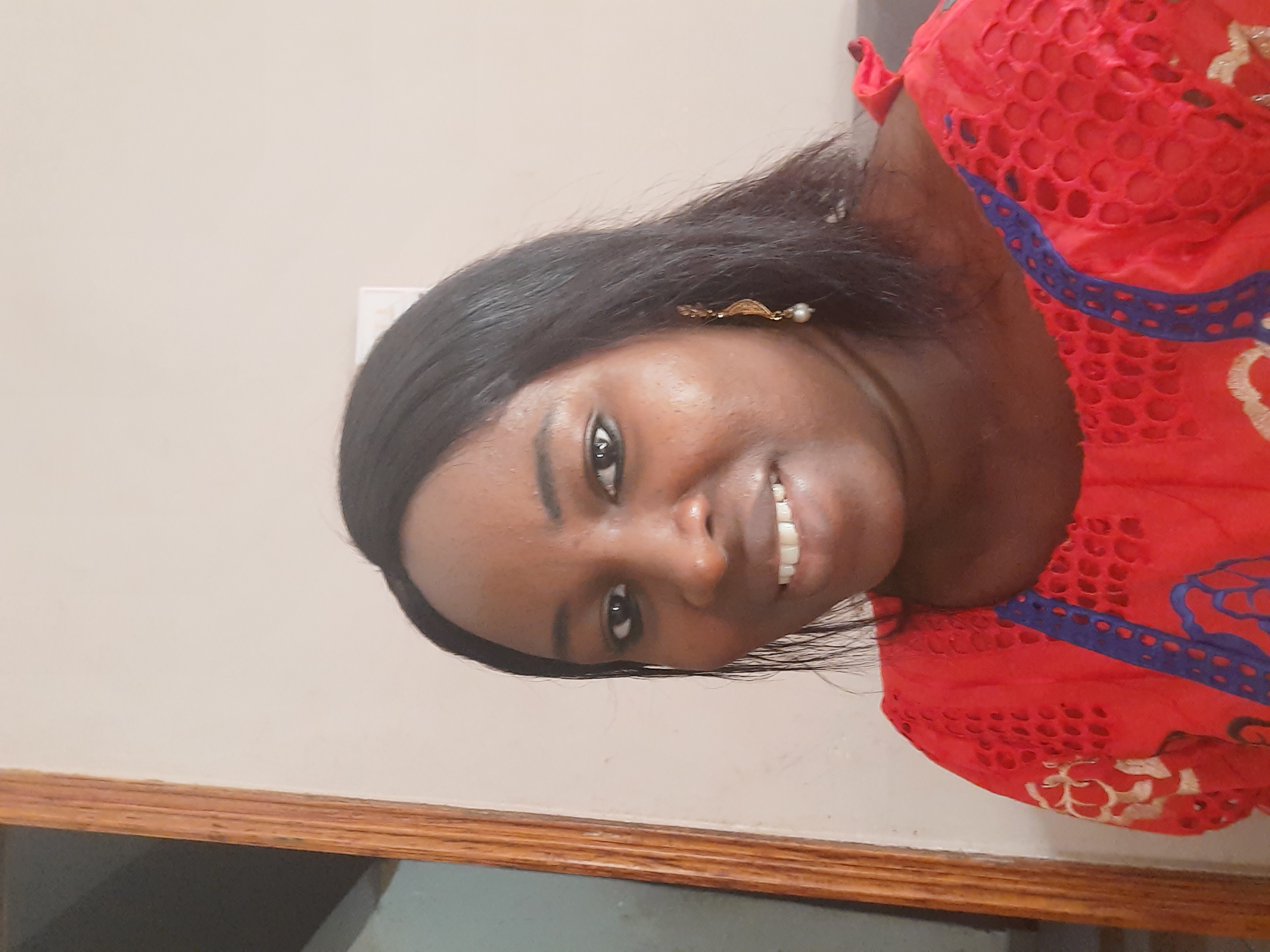
Dr. Binta Koita is an Assistant Professor of Applied Linguistic at the Université des Lettres et des Sciences Humaines of Bamako. She holds a Master’s degree in Communication Studies from the University of Caddy Ayyad of Marrakech and a Doctorate degree in Applied Linguistics from the Institut de Recherches Appliquées, Bamako. Her research interest focuses on education, communication and composition.
During her stay at MSU, she will participate in a project with the proposed title of “Professional Insertion of Youth with Intellectual and Developmental Disabilities in Mali through the ASSET Programme”.
Dr. Sokhna Bienta Lo Amar holds a doctorate in nuclear physics and works in a non-tenured position at Cheikh Anta Diop University (UCAD) in Dakar (Senegal). Her thesis, which was the result of a collaboration between Jefferson laboratory (JLab) in the United States and UCAD, focused on a simulation study of the photo-production of pions in the intermediate energies range of JLab, using GEANT4. Today, Dr. Amar is joining Michigan State University for a one-year post-doctoral position. During this time, she will work on the validation of the Geant4 hadronic physics for rare isotope science at FRIB.
Dr. Nkhensani Mogale is a Lecturer in the Department of Anatomy, University of Pretoria. She currently holds a PhD Anatomy from the University of Pretoria.
Dr. Mogale's research in clinical anatomy focuses on the orthopaedic anatomy of various joints in the body. On going research is related to shoulder arthroplasty and related biomechanics, hip arthroplasty, anterior column pelvic fracture repairs and knee arthroplasty.
Her research project at MSU will focus on the influence in the biomechanical function of the carpometacarpal joint following basal joint arthroplasty in arthritic patients.
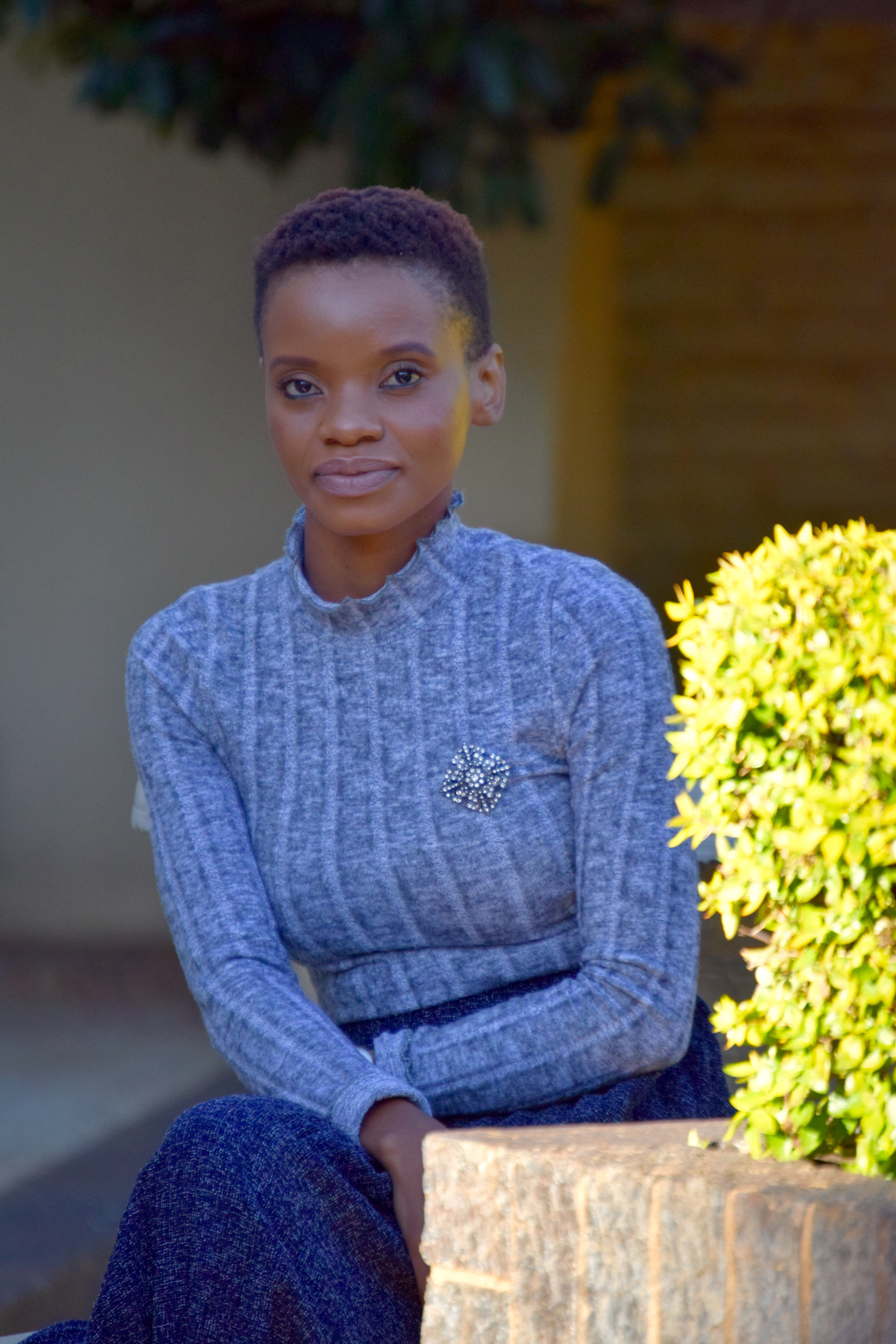
Dr. Tshepo Mogapaesi is a law lecturer at the University of Botswana’s Department of Law. She obtained her Doctor of Laws in 2018 at the North-West University, South Africa; and became the youngest Motswana woman to obtain this highest degree in law. Her area of specialisation is in Labour Relations Law.
In 2020, Dr. Mogapaesi was appointed to the University of Botswana’s Staff Disciplinary Committee as the Chairperson, a Committee which she continued chairing until her travel to Michigan to participate in the AAP doctoral fellowship programme. She considers her serving in this position to have greatly influenced her desire to pursue further research and practice in alternative labour dispute resolution. Tshepo’s postdoctoral research will focus on alternative dispute resolution in the workplace in an endeavour to find out whether lessons can be derived from the American perspective to influence the Botswana approach. She cites this opportunity as timely as it will contribute to her aspiration to be a certified labour arbitrator in future.
 Dr. Rehema Japhet Mwakabenga is a lecturer of teacher education, curriculum and instruction in the Faculty of Education at Dar es Salaam University College of Education (DUCE) of the University of Dar es Salaam. Her research interest focuses on the areas of teacher education with special focus on developing teacher-led professional learning, teacher mentoring, classroom interaction, and gender based instruction. Currently, Dr. Mwakabenga is a national facilitator for Teacher Educators Support Program, which is coordinated by the Ministry of Education Science and Technology in Tanzania with the help of the Canadian government.
Dr. Rehema Japhet Mwakabenga is a lecturer of teacher education, curriculum and instruction in the Faculty of Education at Dar es Salaam University College of Education (DUCE) of the University of Dar es Salaam. Her research interest focuses on the areas of teacher education with special focus on developing teacher-led professional learning, teacher mentoring, classroom interaction, and gender based instruction. Currently, Dr. Mwakabenga is a national facilitator for Teacher Educators Support Program, which is coordinated by the Ministry of Education Science and Technology in Tanzania with the help of the Canadian government.
Her postdoctoral research at Michigan State University (MSU), will work on a project entitled “Professional Learning Communities for Enhancing Competence- Based Teaching in Tanzania”.

Dr. Amaka Harry Ononuju is a young Nigerian academic staff in the Department of Human Kinetics and Health Education, at Lecturer 1 cadre, University of Nigeria Nsukka. She was employed as a Graduate Assistant in 2012 after obtaining an honourable Award of Best Graduating Undergraduate Student in her department for 2009/2010 academic session of the University of Nigeria, Nsukka. She obtained her Masters Degree in 2014 and Doctor of Philosophy Degree (Ph.D) in 2019 all in the field of Public Health Education, University of Nigeria, Nsukka. The aspect of Public Health Education that is of enormous research interest to Amaka is Environmental Health. Thus, she will be working with Dr. Jade Mitchell on “Understanding the Health Impact of Fecal Oral Pathogens in Water Using Microbial Risk Assessment during 2020/2021 Alliance for African Partnership-AAP Fellowship Program at Michigan State University, United States of America. She is passionate about teaching and research on prevailing issues and has records of research successes with multiple published articles. She strives to instill a positive sense of environmental consciousness and responsibility in people to adopt positive practices that promote health and general wellbeing. Undertakes tasks and successfully delivers timely. She has charisma and enjoys team work. Amaka is willing to meet people and is amenable to learning. She is open minded, relates well with everyone and displays signs of good health.
Dr. Amaka Harry Ononuju is happily married to Nnaemeka Harry Ononuju (2014 till date) and the marriage is blessed with three children……Chimamanda Miracle, Chimeremeze Prince and Chikaramobi Goodness.
Check out our Story Behind the Scholar series to learn more about the great work that these scholars are doing during their time at MSU.